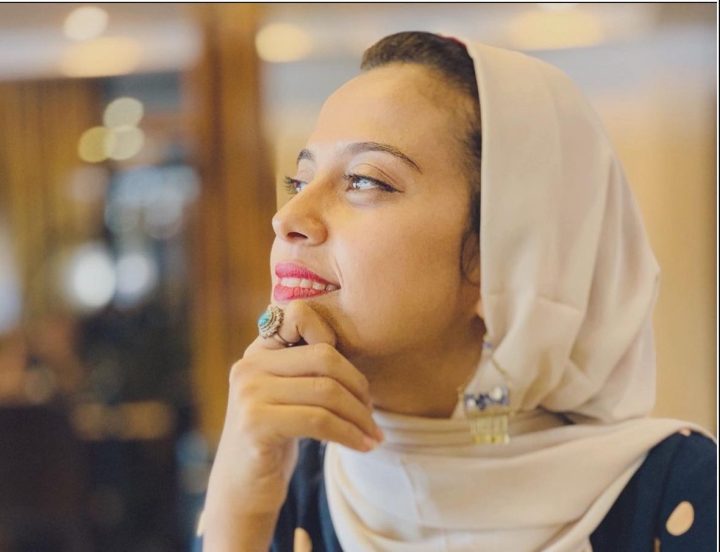
Hey y’all,
A couple months ago, I went home to North Carolina and interviewed my dad about his life in Gaza and how the war has impacted our family. If you haven’t heard the episode, you can find it here.
Making this episode was different from anything I’ve worked on before. I spent many evenings at my desk, crying, trying to process these last few months of tragedy, while attempting to write coherent sentences. I’m very grateful for our producer, Alice Wilder, who gently guided me and helped parse through the interview and research. It’s emotionally taxing working on something so personal, but it was important for me to help humanize a news story that often gets muddied by politics and heated debates. When deluged with so much information, it can be easy to forget that behind every headline of violence or war, there’s a web of people deeply impacted.
That’s why even after I interviewed my dad, I felt compelled to share more human stories from Gaza. With Israel’s military campaign in Gaza being one of the deadliest and most destructive we’ve seen in recent history, much of the coverage is dominated by the predictable, important headlines: the high death toll, the growing hunger crisis and the wide-scale destruction. It’s rarer, though, to come across an intimate portrayal of what it’s like to be in Gaza right now: what it’s like to flee your home, the daily anxieties of just trying to survive and the unexpected financial stakes. I craved stories about how this impossible moment is transforming the emotional and financial worlds of so many people right now.
So, I started looking for people in Gaza who’d be open to sharing their inner life with me. Over the course of several weeks, I scoured social media and reached out to at least 25 people who caught my attention. Of those, about six responded. I was in touch with several of them for weeks, but there was one person in particular I kept coming back to: Hana.
Hana and I exchanged voice memos over Whatsapp for a couple weeks in late December and early January, but to record an actual interview, we needed to get on a Zoom call, which proved to be very difficult. Israel is blocking most of Gaza’s electricity, and there are frequent communication blackouts. We had to schedule and reschedule a few times; even that Saturday morning when we first connected, I wasn’t sure we’d talk until minutes before. Hana luckily was in a place with solar panels, but even so, the internet cut out at one point. We connected with audio only, so video wouldn’t bog down our connection.
Whenever we feature someone’s personal story on the show, we’ll talk with them for up to six hours total, often multiple times. That was especially critical for Hana’s story since we were following her over the course of several weeks. The most challenging moment was last month when a communications blackout lasted more than a week. I had no idea if she was safe, or even alive. My messages weren’t going through. Along with my family in Gaza, Hana was the first person I thought of each morning when I woke up. If you listen, you’ll discover we eventually reconnected, but the whole process was very stressful.
This episode, which I worked on alongside our producer Hannah Harris Green, is one of the most meaningful stories I’ve produced. While Hana’s circumstances feel far removed from our reality, I think you might identify with elements of Hana’s story, including her financial background and aspirations, more than you expect. I hope you give it a listen.
— Reema
The comfort zone
What our team is into this week
- Here’s another great pod about how ordinary people are getting by in Gaza right now.
- From Mashable: “What to do if someone makes a deepfake of you”
- Here’s a gift link to an Uncomfortable New York Times story that’s stranger than fiction.
- The board game Dixit’s been a big hit with Hannah’s whole family.
- Meanwhile Jasmine’s been chilling out with Dave the Diver.
- This soup was a lifesaver when Zoë was sick last week.
- Were you in the top 1% of readers last year?
- Here’s a good guide for millennials trying to figure out how to dress right now.
- This is a great podcast for people like Tony who are strangely addicted to reading about horror movies on Wikipedia but never watching them.
- We’re “going Dutch,” but not in the way you think.
- Hanif Abdurraqib is one of our all-time favorite writers, and he posted a history lesson on IG about “Fast Car” after the Grammys this week.
- Your weekend vibe: What else could it be?
There’s a lot happening in the world. Through it all, Marketplace is here for you.
You rely on Marketplace to break down the world’s events and tell you how it affects you in a fact-based, approachable way. We rely on your financial support to keep making that possible.
Your donation today powers the independent journalism that you rely on. For just $5/month, you can help sustain Marketplace so we can keep reporting on the things that matter to you.

















